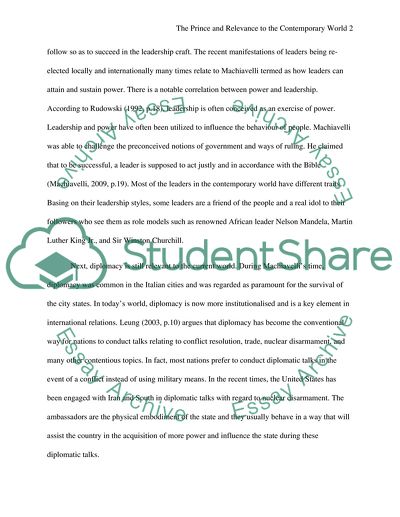Cite this document
(Machiavelli's The Prince and Relevance to the Contemporary World Assignment, n.d.)
Machiavelli's The Prince and Relevance to the Contemporary World Assignment. Retrieved from https://studentshare.org/politics/1880518-themes-and-concept-of-international-relations
Machiavelli's The Prince and Relevance to the Contemporary World Assignment. Retrieved from https://studentshare.org/politics/1880518-themes-and-concept-of-international-relations
(Machiavelli'S The Prince and Relevance to the Contemporary World Assignment)
Machiavelli'S The Prince and Relevance to the Contemporary World Assignment. https://studentshare.org/politics/1880518-themes-and-concept-of-international-relations.
Machiavelli'S The Prince and Relevance to the Contemporary World Assignment. https://studentshare.org/politics/1880518-themes-and-concept-of-international-relations.
“Machiavelli'S The Prince and Relevance to the Contemporary World Assignment”, n.d. https://studentshare.org/politics/1880518-themes-and-concept-of-international-relations.


